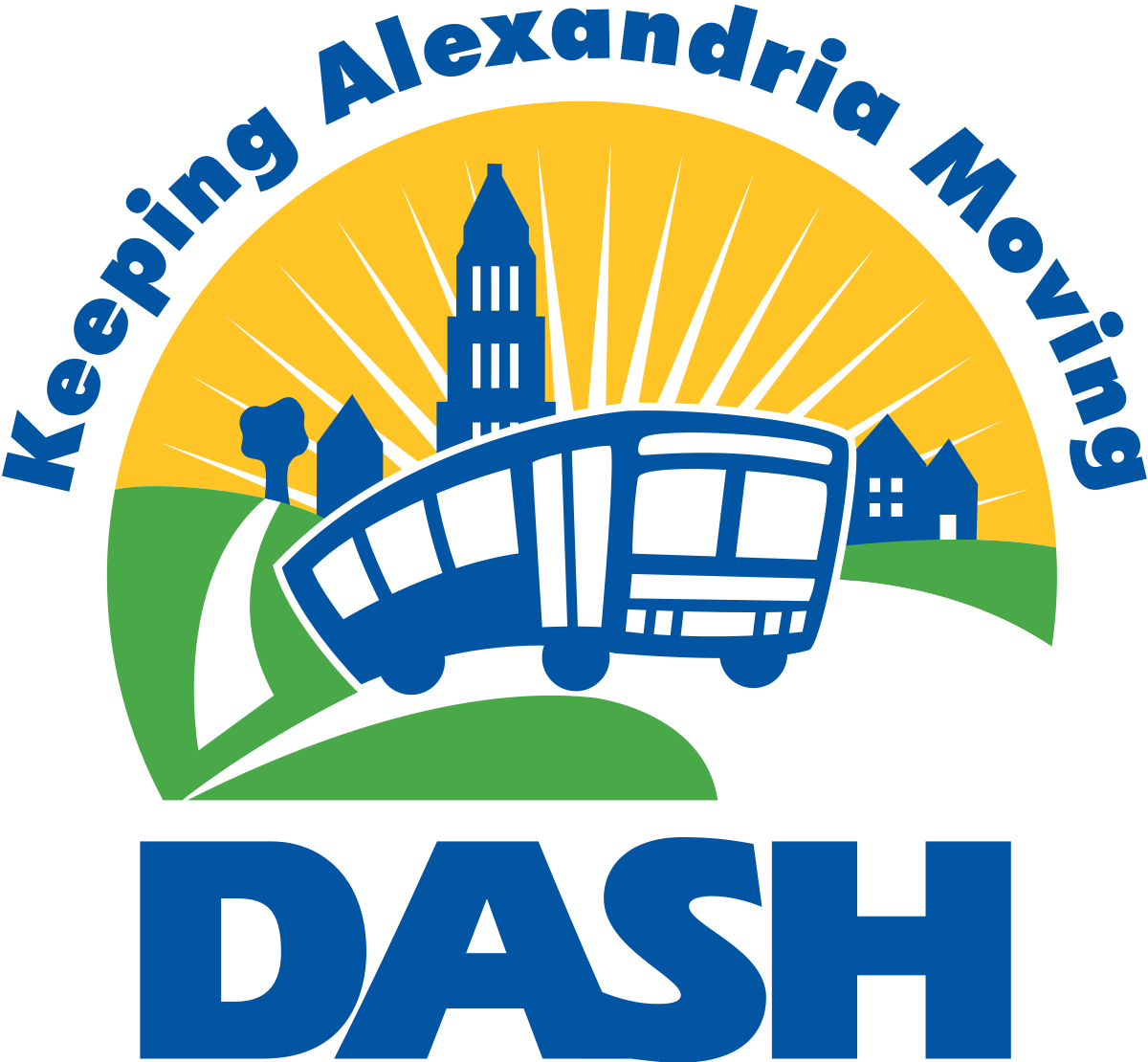MetroNow Dispatch 5.2021
This month the Dispatch talks about how transit is safe, especially if you are vaccinated, transit crowding data, and our Transit Champion of the Month: the City of Alexandria.
Transit is safe, just don’t lick the seat, ever 😋
Transit is ready for you to return as vaccination rates increase and the region more fully reopens in the coming weeks. Transit is safe and has not been identified as a major source of transmission during the pandemic. Hundreds of thousands of trips around the region have been taken on WMATA alone every day this year. Over the past few weeks, more and more people have been returning to transit and COVID cases are still dropping.
We need transit! Transit needs you! When you hear your friends, family, and colleagues say transit isn’t safe, ask them why they think that? Check out WMATA’s guidance for safe riding - wear a mask, avoid conversation, and practice physical distancing (when possible). If you wear a mask, especially if you are vaccinated, transit is safe. Spread the word!
We know the coming weeks and months are going to be a little *weird* and will bring on a host of new behaviors. Whether you’re heading back to the office or going to a concert, we see this transition period as an opportunity to increase transit use. To achieve our region’s climate goals of reducing greenhouse gas emissions 50% by 2030, we must aggressively work towards shifting people out of cars (*yes, even EVs. Smart Growth America (SGA) and Transportation for America (T4A) spelled this out in their Driving Down Emissions report).
Plus, something no one misses in the DMV is the costly pre-COVID car commute. In 2019, Washington DC metro area residents had the costliest and lengthiest average car commute, coughing up $12,015 each year on average just to drive to the office. Now is our chance to do things better than before. The more each of us chooses to take the bus, metro, bike, scooter, or non-SOV modes for even one trip a day, the healthier, more sustainable, and more competitive our region will become.
Read more:
American Public Transportation Association’s Health and Safety Commitments Program
“APTA’s Health and Safety Commitments Program is the public transportation industry’s overarching pledge to passengers that our systems are operating safely as North America recovers from the COVID-19 pandemic. Agencies using the materials developed for the Program sign a pledge to implement the commitments.”CDC Guidance When You’ve Been Fully Vaccinated
”Fully vaccinated people can resume activities without wearing a mask or physically distancing, except where required by federal, state, local, tribal, or territorial laws, rules, and regulations, including local business and workplace guidance... You will still be required to wear a mask on planes, buses, trains, and other forms of public transportation traveling into, within, or out of the United States”Masks are still required in planes, trains and buses despite the loosened CDC guidelines (Washington Post 5.13.21)
“While it’s not clear that airplanes present a greater risk of transmission than other indoor spaces — some studies suggest they are actually safer — requiring masks in planes could help enforcement of the policy, especially as flight attendants have no reliable way to know which passengers have had their shots.”
Transit Crowding Data
We understand… you know transit is safe if you wear a mask, especially if you are vaccinated, but you are still unsure if you are ready. The thought of a packed Metro car or crowded bus makes you a little queasy. The good news is there are tools to help you understand the crowding conditions of transit so you can make the best decision for yourself, what you are comfortable with, and when may be the best time for you to take transit.
WMATA Metrobus’s busETA tool shows live occupancy data for each bus
The Greater Washington Partnership’s Transit Tracker summarizes crowding trends for WMATA Metrorail and VRE and is updated every two weeks
Explore these tools to make the right decision for you and your comfort level.
Read more:
Virginia Railway Express brings back full service June 1 (WTOP 5.10.21)
“All social distancing and face covering requirements will remain in place,” VRE said in a statement. “We will also be continuing the enhanced cleaning efforts and other protocols implemented over the past year.”D.C. to remove capacity, activity restrictions for most businesses on May 21 (Washington Post 5.10.21)
“D.C. Mayor Muriel E. Bowser said the District will lift capacity and other restrictions on most businesses and public venues by May 21, a decision that comes as coronavirus cases and deaths are plummeting and residents and businesses are demanding more freedom. Masks will still be required indoors”
WMATA, Let’s Refresh Our Talking Points

At the start of the pandemic, WMATA encouraged people not to take transit unless absolutely necessary. This messaging made sense in an environment where the method of transmission was uncertain and the potential for transmission on transit was thought to be very high.
Today, we know transit has not been identified as a major source of transmission and it may even be safer than ever before the pandemic. In the before times, most of us were already trying to avoid conversation and practice physical distancing on transit. We probably should have been wearing masks too if sick or during flu season.
As a majority of adults in the country have been at least partially vaccinated, it is time for WMATA to pivot to more positive messaging. The Washington metro area has one of the best transit networks in the country, if not the world. Yes it has its problems, but don’t we all. This region should cherish that asset and enhance its success by getting back on board. If you are vaccinated and have a mask, try transit. It is ready for you (p.s. there may even be a few upgrades since the last time you hopped on).
Read more:
Metro expects most pre-pandemic riders won’t return this year amid an altered future for transit (Washington Post 5.13.21)
”The transit agency will regain only about 42 percent of its pre-pandemic riders by the end of the year, according to a new report presented to the board. Much of the decline will stem from federal workers — Metro’s largest customer base — being allowed to work from home more often.”Riders Say Frequent Cleaning, Ability To Social Distance Will Encourage Them To Return To Metro (DCIST 5.13.21)
"A vast majority of people, about 3 in 4, say they would feel safe riding Metro when they are vaccinated. But 9 in 10 say they want to work from home at least one day a week.”Survey: Metrobus riders return in greater numbers, but Metrorail's ridership looks bleak (WJLA 5.10.21)
“By the end of this year, Metro only expects about 42% of pre-pandemic Metrorail commuters to be riding its trains to work again - and even most of those riders are expected to be making fewer trips than they did pre-pandemic.”Metro will begin expanding late-night bus service in June (Washington Post 5.6.21)
“Metro officials will expand late-night bus service and restore service on selected routes throughout the region starting June 6. The additions are part of an effort to provide more frequent, reliable service as riders across the region begin to return to Metrobus. Beginning June 6, Metro will extend operating hours until 2 a.m. on more than 35 of its busiest routes in the District, Maryland and Virginia.”
Transit Champion of the Month: City of Alexandria
The City of Alexandria is MetroNow’s Transit Champion of the Month for its bold steps to rethink the transit experience and adopt best practices from around the country in terms of transit equity and transit service. Starting September 5, 2021, DASH, the city’s local transit service, will be free for all AND the city will run buses more frequently in the midday, evenings, and weekends. These changes can help create a more equitable transit network and a more reliable, more useful transit network that is more inclusive of people’s daily needs and does not only cater to the 9-5 commuter. Now we just need the region to get behind a similar redesign of WMATA’s bus system.
Read more:
Alexandria lowers property tax rate, makes DASH buses free (WTOP 5.6.21)
“The Northern Virginia city will overhaul its 37-year-old bus system to focus on increased access. Fares on the DASH buses will be free starting Sept. 5. Buses, which have seen low ridership since the pandemic, will run more frequently in the midday, evenings and weekends under a planned overhaul of the system that will change some routes.”Denver's RTD to Launch Systemwide Fare Study, Equity Analysis (METRO 4.30.2021)
“Recognizing that its fare structure is one of the most expensive in the transit industry, Denver’s Regional Transportation District (RTD) is embarking on a comprehensive, systemwide study of its fares and a fare equity analysis to ensure that the agency is doing all it can to make its services more accessible.”SEPTA Rebuilding Its Bus Network From Scratch (ABC Philadelphia 4.29.21)
“SEPTA is looking to rebuild its entire bus network as part of its "Bus Revolution," a three-year project that officially launched Thursday. SEPTA said the purpose is to make the system more reliable and efficient for residents. "Our current bus network of over 120 routes has not been touched or changed significantly for decades," said Jody Holton, assistant general manager of planning at SEPTA.”
Tysons Partnership Survey
Tysons Partnership has put together a survey to help the region better understand peoples’ intentions and plans as the region begins to return to pre-pandemic daily activities like going to the office, shopping, dining, and riding transit
Please take a quick moment – under 5 minutes – to answer a few questions. Your participation is very important and will help community leaders plan to reopen in ways that best serve our community. You do not need to be a Tysons resident or work in Tysons to take the survey.
Please complete the survey by May 21st.
Subscribe + Share!
Sharing is caring! Share the MetroNow Dispatch with any friends, colleagues, or family members who want to join us for the ride!
Follow @MetroNow on Twitter for daily tidbits of transit gold.
Reach out to us directly with any feedback, hot takes, or ideas for future newsletter topics: info@metronow.com
The MetroNow Coalition is made up of regional leaders from the business, non-profit, and advocacy communities who believe that transit is designed to bring us together —at work, school, and play. Today, we believe our collective advocacy for better transit for the Washington DC region is more important than ever.
We launched theMetroNow Dispatch to bring residents, leaders, and transit agencies together to think about how we can make better transit today, during the pandemic, and “tomorrow,” as we look beyond recovery to how we can build a more equitable, sustainable, and accessible transportation system for our region.






